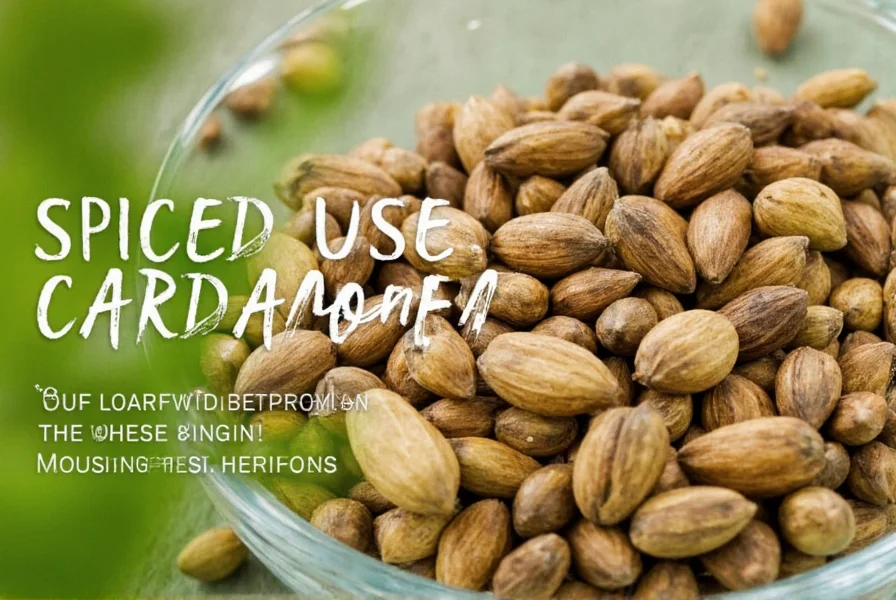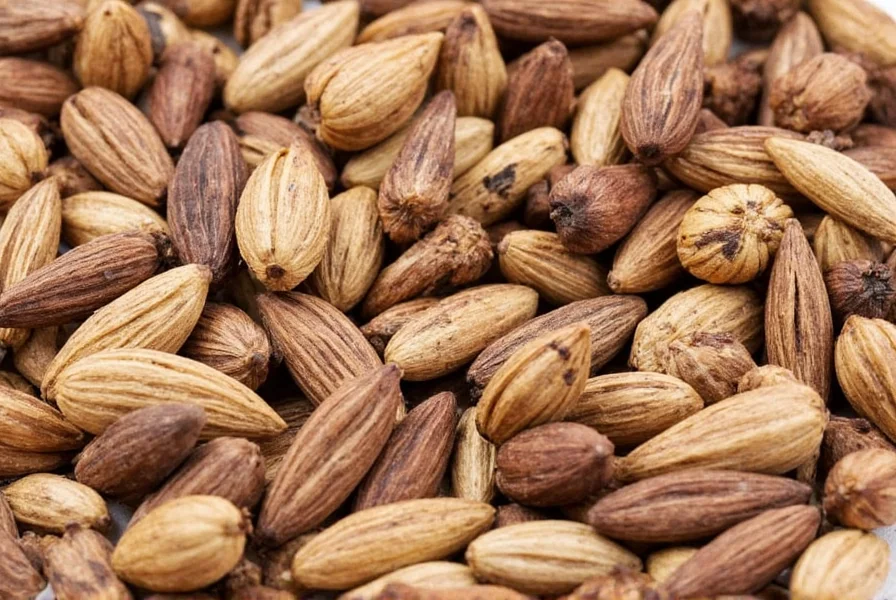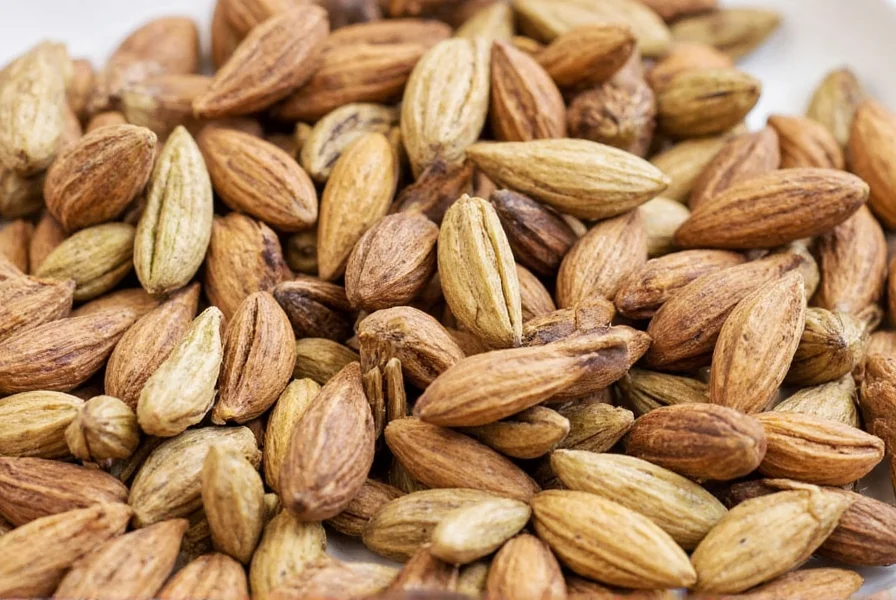Cardamom, often called the “Queen of Spices,” has been prized for millennia across global culinary traditions. When transformed into spiced cardamom blends, its distinctive citrusy, floral notes harmonize with warming spices to create versatile flavor foundations for both sweet and savory dishes. Understanding how to properly use and store these blends elevates everyday cooking while connecting modern kitchens to ancient spice traditions.
The Essence of Cardamom in Spice Blends
Cardamom exists primarily in two varieties: green cardamom (Elettaria cardamomum), which offers bright, citrusy notes, and black cardamom (Amomum subulatum), with its smoky, camphorous character. In spiced cardamom preparations, green cardamom typically serves as the base due to its versatility. The magic happens when cardamom pods or freshly ground seeds combine with complementary spices that enhance rather than overwhelm its delicate profile.
Traditional spiced cardamom recipes often follow regional patterns. In Middle Eastern cuisine, cardamom joins forces with cinnamon and cloves in baharat. Scandinavian kvikkol blends feature cardamom with ginger and allspice. Indian garam masala incorporates cardamom alongside nutmeg and mace. Each culture has refined these combinations through generations of culinary practice, creating distinctive flavor signatures.
| Common Spiced Cardamom Blends | Primary Ingredients | Traditional Uses |
|---|---|---|
| Middle Eastern Baharat | Cardamom, cinnamon, black pepper, cloves | Meat rubs, rice dishes, stews |
| Scandinavian Kvikkol | Cardamom, ginger, allspice, nutmeg | Baking, coffee, holiday treats |
| Indian Garam Masala | Cardamom, cumin, coriander, nutmeg | Curry bases, lentil dishes, marinades |
| Arabic Cardamom Coffee Blend | Cardamom, saffron, rosewater | Coffee flavoring, desserts |
Creating Authentic Spiced Cardamom at Home
Making homemade spiced cardamom ensures maximum freshness and flavor control. Start with whole green cardamom pods, which retain their essential oils far longer than pre-ground spice. For a basic Middle Eastern-style blend, combine 12 crushed cardamom pods with 1 cinnamon stick, 6 whole cloves, and 1 teaspoon black peppercorns. Lightly toast the spices in a dry skillet over medium heat until fragrant (about 2 minutes), then grind to a fine powder.
When exploring how to use spiced cardamom in baking, remember that heat intensifies its floral notes while mellowing sharper elements. Scandinavian bakers often incorporate spiced cardamom blends into sweet breads at a ratio of 1-2 teaspoons per cup of flour. For coffee enthusiasts, adding a pinch of spiced cardamom blend directly to coffee grounds before brewing creates an aromatic experience central to Arabic coffee traditions.

Health Benefits of Spiced Cardamom Blends
Research suggests that cardamom spice blend benefits extend beyond flavor. Cardamom itself contains compounds with antioxidant properties, while complementary spices like cinnamon and cloves contribute additional phytochemicals. A 2022 study published in the Journal of Food Science found that the synergistic effect of spices in traditional blends like spiced cardamom mixtures demonstrated greater antioxidant activity than individual spices alone.
Traditional medicine systems have long valued cardamom for digestive support. When combined with ginger in spiced cardamom preparations, this digestive benefit appears enhanced. However, these potential benefits should be understood as complementary to a balanced diet rather than therapeutic interventions.
Optimal Storage for Maximum Flavor Preservation
Storing spiced cardamom properly significantly impacts its shelf life and potency. Whole spice blends maintain freshness for 12-18 months when stored in airtight containers away from light and heat. Ground blends lose potency more quickly—typically within 6 months. For extended storage, keep spiced cardamom in the freezer where it retains flavor for up to 2 years.
The difference between green and black cardamom in spice blends affects storage considerations. Green cardamom's delicate flavor compounds degrade faster than black cardamom's more robust profile. When creating blends with green cardamom, consider making smaller batches more frequently to ensure peak flavor.

Integrating Spiced Cardamom into Modern Cuisine
Contemporary chefs increasingly recognize traditional spiced cardamom recipes as foundations for innovation. The cardamom spice blend for coffee has inspired craft roasters to develop signature blends featuring subtle spice infusions. In pastry kitchens, spiced cardamom elevates everything from croissants to ice cream with its complex warmth.
When adapting these blends to modern palates, maintain respect for the balance achieved through centuries of refinement. Authentic spiced cardamom shouldn't feature cardamom as a dominant note, but rather as part of a harmonious ensemble where each spice enhances the others. This principle holds whether preparing traditional Middle Eastern lamb dishes or experimenting with cardamom-infused craft cocktails.
Final Considerations
Exploring spiced cardamom opens a gateway to understanding how cultures have refined flavor combinations over centuries. Whether you're making homemade spiced cardamom for baking, crafting the perfect cardamom coffee blend, or experimenting with traditional recipes, the key lies in respecting the delicate balance that makes these spice combinations endure. Start with small batches, pay attention to freshness, and allow the nuanced flavors to transform your cooking experience through this ancient yet continually relevant spice tradition.











 浙公网安备
33010002000092号
浙公网安备
33010002000092号 浙B2-20120091-4
浙B2-20120091-4